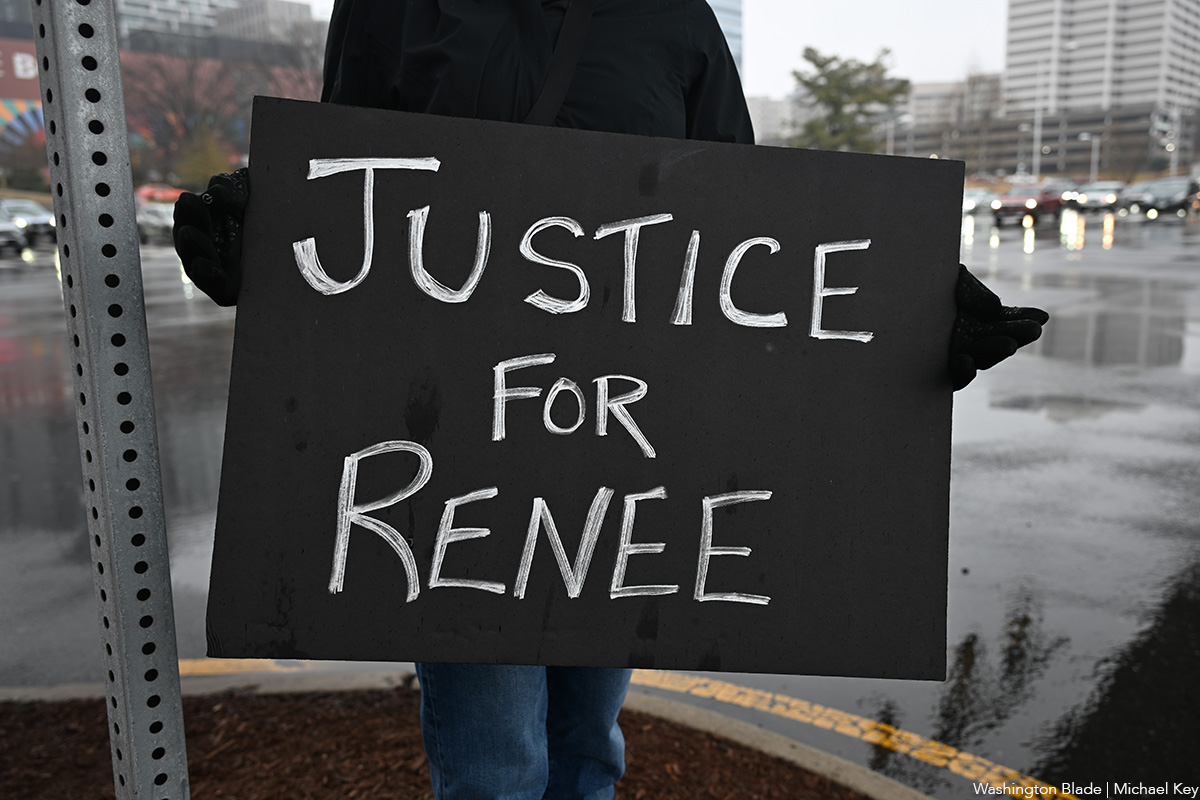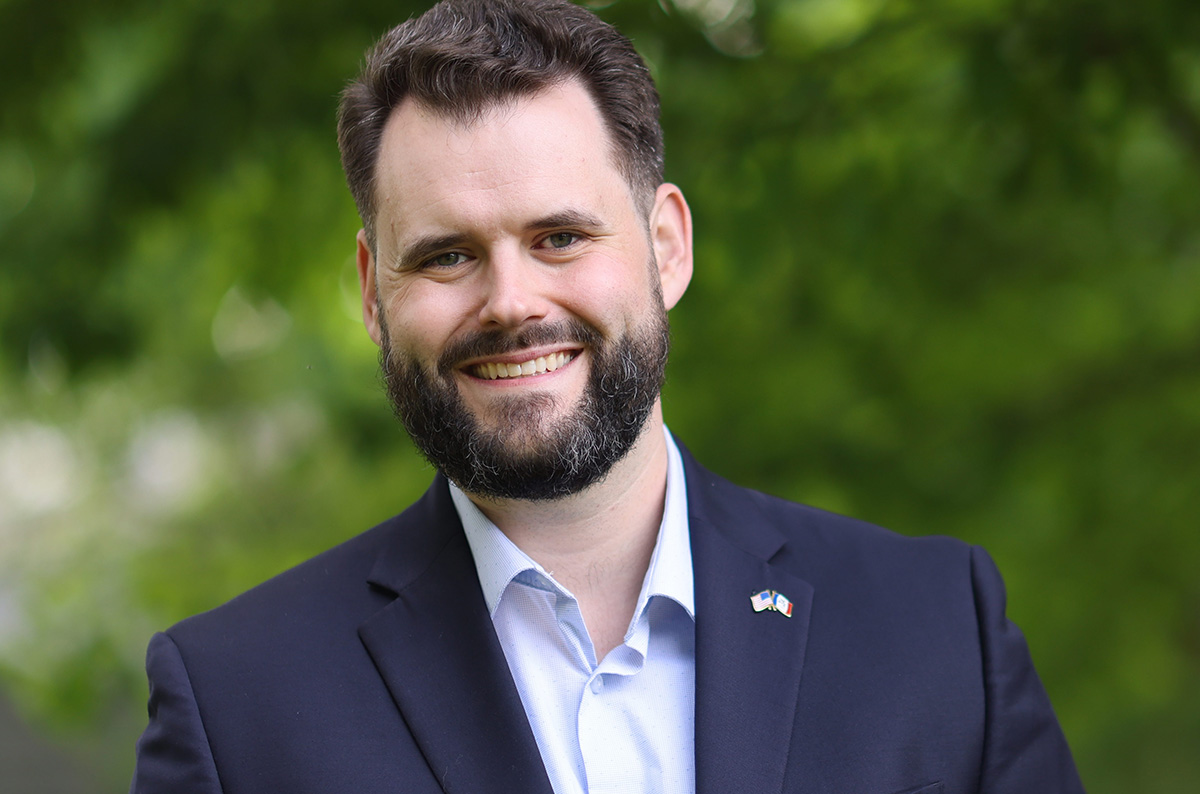Opinions
I came to Washington to work in the Carter administration
Celebrating a decent and honorable president

I had the honor of working in the Carter administration. It was not something I even thought about when he won the presidency in 1976.
Sen. Henry ‘Scoop’ Jackson (D-Wash.) won the New York Democratic primary, but his campaign was faltering. Then-Mayor Abe Beame endorsed Jimmy Carter. Beame was the fourth big city mayor to do so, but his being Jewish made his endorsement all the more important. The year 1976 was also when Rep. Bella Abzug (D-N.Y.) was running in a Senate primary and I volunteered in her campaign. At the time, I was Citywide Coordinator Local Government in the Mayor’s Office of Neighborhood Services. It was an interesting time. I attended the Democratic National Convention, held in New York, and saw Carter nominated. Abzug then lost her primary, in a close race, to Patrick Moynihan.
As the general election began, I was asked to be one of the liaisons to the Carter campaign from the mayor’s office. I spent many evenings, on my own time, in Carter’s New York campaign office. Even after he won, I never thought about serving in his administration and was very happy working in New York. But as anyone in politics can tell you, things often change quickly.
In 1977, Abzug decided to run for mayor. I ended up leaving the Beame administration to become her deputy campaign manager. It was the title she offered me to leave Beame, who was running for re-election. Bella and Beame both lost in the first round of the primary. The run-off was between Mario Cuomo and Ed Koch. My first and only mention on the front page of the New York Times, above the fold left hand column, was when I went to work as field director for Cuomo. When Koch won, he let me know through an intermediary I was persona non grata in city government as long as he was mayor.
Abzug invited me to go with her to the White House when she presented the final report from the Houston Women’s Conference to the president. Being unemployed, I walked around the White House handing out my resume; we still used paper in those days. Abzug kept whispering in my ear, “don’t you dare give it to the president.” Well not the president, but one of the people I gave it to, did respond. Six weeks later I was hired to be executive director of the White House Conference on Handicapped Individuals Implementation Unit. So I moved to Washington to begin an exciting two years. Turned out it was the beginning of a whole new life for me, including coming out. I never looked back.
During his campaign, Carter had promised to implement the recommendations of the White House Conference on the Handicapped held during the Ford administration. Carter, above all else, was a decent man. In so many ways his presidency is underrated and he doesn’t get the credit he should.
Kai Bird wrote in the New York Times about a host of Carter’s successes. “He delivered the Camp David peace accords between Egypt and Israel, the SALT II arms control agreement, normalization of diplomatic and trade relations with China and immigration reform. He made the principle of human rights a cornerstone of U.S. foreign policy, planting the seeds for the unraveling of the Cold War in Eastern Europe and Russia.” In addition, “He deregulated the airline industry, paving the way for middle-class Americans to fly for the first time in large numbers, and he deregulated natural gas, laying the groundwork for our current energy independence. He worked to require seatbelts or airbags, which would go on to save 9,000 American lives each year. He inaugurated the nation’s investment in research on solar energy and was one of the first presidents to warn us about the dangers of climate change. He rammed through the Alaska Land Act, tripling the size of the nation’s protected wilderness areas. He appointed more African Americans, Hispanics and women to the federal bench, substantially increasing their numbers.”
Jimmy Carter was only a one-term president. Today, he is known for having the most relevant post-presidency. He lost his reelection campaign for many reasons. One, Ted Kennedy ran against him in a primary and though losing, hurt Carter’s chances for reelection. Then the Iranian hostage crisis, which lasted for 444 days and Carter’s Rose Garden strategy, not going out and campaigning until the hostages were released. The Iranians didn’t release them until 12:01 on the day Ronald Reagan was inaugurated.
Again, above all, Jimmy Carter will be remembered as a decent and honorable man.
Peter Rosenstein is a longtime LGBTQ rights and Democratic Party activist. He writes regularly for the Blade.
Opinions
Do not forget that Renee Good was queer
Far-right media link shooting victim’s sexuality to her protest of ICE

Please do not forget that Renee Nicole Good was a queer woman.
Last week, Good, a 37-year-old American citizen, was shot and killed by a United States Immigration and Customs Enforcement agent in Minneapolis. Her wife Rebecca Good was present when the ICE agent shot her, standing outside their car. In the immediate aftermath, Minneapolis erupted with protests aimed at ICE in the city and Republican officials, including President Donald Trump and Vice President JD Vance, who argued the shooting was justified as an act of self-defense.
In a press conference held this past Thursday, Vance told reporters that Good was “a victim of left-wing ideology.” “I can believe that her death is a tragedy,” Vance said,” while also recognizing that it is a tragedy of her own making.” Many criticized Vance’s statement, especially given how he blamed “left-wing extremism” for Charlie Kirk’s death in September on a Utah campus and Vance himself doubled down on condemning those who were celebrating the far-right podcaster’s fatal shooting.
Department of Homeland Security Secretary Kristi Noem implied that Good was a domestic terrorist while Fox News host Jesse Watters said that “the woman who lost her life was a self-proclaimed poet from Colorado with pronouns in her bio.”
Laura Loomer, another far-right Trump supporter, tweeted, “‘She/her.’ Literally every time,” in response to what is believed to be Good’s Instagram account. Loomer and Watters both pointed out her pronouns are somehow part of the reason she was tied to ICE-related violence.
As these comments from far right pundits show, far-right media coverage was quick to connect Good’s queerness to her work to inhibit ICE activity in Minneapolis.
But while far-right news outlets highlighting Good’s queerness, centrist and even leftist news outlets also erased her wife’s experience, featuring interviews with Good’s mom and ex-husband but not her wife who was present for the shooting, feeding into the narrative that she was an “innocent” white mother while denying Good’s own agency in mobilizing for immigrants in her community.
Nobody should be shot by government agencies ever, and these news outlets do not need to play into the construction of an “innocent” white woman for people to be outraged by her death. In fact, in doing so and denying Good’s queerness, they deny the way in which Good’s identity likely affected the way she interacted with the police. For queer and trans people, police are not safe people–in fact, Good’s last words deescalating the situation reflect the ways that homophobia and misogyny prime queer women, and all women to placate men’s emotions.
And it still didn’t work. After shooting her, the ICE agent called her a “fucking bitch,” in front of her wife who was kept away from Good while she bled out in her car.
When the media reinforces the narrative that she was an “innocent” mother, it reinforces the same sexism and racism that allows police brutality to continue.
In an interview, author of the book After Purity released this past December, Sara Moslener said that “White womanhood has been constructed to require that white women sort of maintain purity within themselves as a way to maintain the purity within themselves as a way to maintain the purity of, the innocence of, the nation state. When the purity movement resurfaced in the 1990s, it was this recapitulation of the 19th century nation of sexual purity that was highly racialized.”
“It wasn’t something that was accessible to enslaved women, to other women of color, to immigrant women. It was this ideal of true womanhood that became connected to this idea of a strong nationstate. That rhetoric was then used to justify racial terror lynchings. If white women were threatened, you know, physically, bodily, culturally, they have the right to claim things. This was often used as a guise to justify violence and murder, especially against Black men. It even ties to the concept of Karen and the entitlement of white women, where they can weaponize their vulnerability,” Moslener said.
Good’s shooting for many people was a breaking point for this very reason — because it represented the first time that they had witnessed a white person killed by an ICE agent or a member of the police.
For some, their whiteness had been a source of safety because of the privilege of their skin color, or so they thought until Good’s murder this past week. In the aftermath, they are rethinking if this privilege will continue to protect them and what it can mean in a world where violence against white women’s bodies has long caused social backlash.
This is not a reason to stop fighting — Good was not the first person killed by ICE, not even the first person killed by ICE in 2026, but her whiteness is one of the central reasons that it incited outrage — because of a society that privileges and protects white women’s bodies. To describe Good as solely an “innocent” white woman, to deny her queerness, is to play into this performance of outrage about the brutalization of white women’s bodies.
If discussions of Good’s queerness — and persistent queerphobia against queer women — is not considered in our outrage, in our protests, we feed right into the same narratives that mean some police brutality, especially that against queer and trans people and people of color, goes completely unreported and unchallenged.
This is state-sanctioned violence, and in the immediate aftermath of Good’s death, the Trump administration has demanded that people deny the evidence of their eyes and ears, has pushed the narrative that Good weaponized her vehicle against an ICE agent and that agent fatally shooting her was an act of self defense. This is categorically false but denying what we know to be true, what we can witness ourselves and understand, is the final step in fascism armed and funded by the government.
But let’s be frank: This is not the first time that the American police or a government agent has murdered an unarmed person. Just under six years ago, George Floyd was murdered by police officers in the same city — his death was a breaking point for many who had witnessed police brutality against people of color.
While people are eager to say Good’s name, we cannot say or remember her without remembering and saying the names of Black and Brown men and women, especially disabled people of color, who have been murdered in the hundreds by the police. Their names are often said, their murders often go unquestioned.
People have been and will continue to say Good’s name largely because she was a white woman but the names of Black and Brown people go unsaid and unrecognized because of a system that performs outrage about violence against white bodies. What Good’s murder realized was how a system built on the protection of white women — a Christian nationalism committed to Social Purity — will still sacrifice white women who refuse to fall in line.
Six federal prosecutors in Minnesota resigned this week over the Justice Department’s push to investigate Good’s widow. Among them was Joseph Thompson, a career federal prosecutor, who objected to investigating Good’s wife as well as the department’s refusal to investigate whether the shooting was lawful.
In the signs, in the protests, in the prayers and pleas that you say and make in the aftermath of Good’s murder, do not deny her queerness, do not deny who she was and do not deny the work she did because in performing outrage against the murder of an “innocent” white mother we replicate the same systems of harm that hurt us all.
Emma Cieslik is a museum worker and public historian.
Letter-to-the-Editor
D.C. electoral bumper car season is in full swing
More than a dozen candidates running for incumbent Eleanor Holmes Norton’s seat

The District of Columbia has entered into a challenging time not seen since Dr. Martin Luther King was murdered, the city burned and rioted and risked home rule being taken away. While statehood has twice passed the U.S. House of Representatives, the dream of being the 51st star on the American flag stagnates, to say the least.
Currently according to Politics 1.com, there are already 14 Democrats including two sitting members of the City Council (At-Large Robert White and Ward 2’s Brooke Pinto) and one Republican who have declared their candidacy to become the new voice in Congress. Unfortunately Congresswoman Eleanor Holmes Norton has refused to either announce her intentions to run for re-election again or gracefully acknowledge her time is over and she is ready to hand over the reins to continue the battles inflicted upon our home city. Congressional representation by press releases has simply got to stop as soon as possible!
Rank choice voting is going to be implemented in this 2026 cycle despite efforts to overturn or delay its implementation. Regardless of your thoughts on the new system, this will be one very interesting contest year to say the least. Rank choice … ready or not … here it comes!
Needless to say, the race for the Congressional seat is not the only major contest. Let us not forget the other positions up for election: the mayor, the attorney general, the chairman of the City Council, several ward and at-large races for the council. Add all these up and you will be looking at more moves on the political chess board than seen in the first Harry Potter film with the same results too. (As an aside, while the District of Columbia has no elected senators, it should be pointed out that any elected House member AND the District mayor have Senate floor privileges when in session.)
Before the June primary, it would be wise to make sure your voting registration is still current at the D.C. Board of Elections. Also, please urge friends not registered to do so as soon as possible. May we have the strength and will power to take back our city and stand up to those who want to destroy it.
Opinions
Zach Wahls stood up for us, now let’s stand with him
Young Iowa Democrat running for U.S. Senate

It was 15 years ago, on Jan. 30, 2011, that a college student, Zach Wahls, bravely stood in front of the Iowa Legislature, and spoke out, defending the marriage rights of his two moms. On Jan. 28 we will celebrate the 15th anniversary of that speech. That was the first time I, and millions of others, heard of Zach Wahls. I know Zach had no idea that speech would propel him to national prominence. It went viral, and Zach was invited to appear on the Ellen DeGeneres show, among other appearances.
At the time, he was an engineering student at the University of Iowa. As he has said, when he prepared his notes over the weekend for his Monday speech to the legislature, he had no idea where this would lead him. Today, so many of us, not just his moms, have the chance to repay him for what he did that day, when he defended all our rights in Iowa. In the past 15 years, Zach has never stopped standing up for the rights of his moms, and for all of us in the LGBTQ community.
I first met Zach at an event in Washington, D.C., when he was leading the fight to allow gay men to be leaders in the Boy Scouts of America. Having been a Boy Scout myself, and an Explorer adviser, and having promoted scouting for the handicapped (the term we used back in those days) this was an important fight for me. I was both honored to meet Zach, and have the chance to join him in that fight. Since then, I have followed his career. First as he went to Princeton for his graduate degree, and then back to Iowa, he is a sixth generation Iowan, to run for, and win, a seat in the Iowa State Senate. He was then elected to the post of minority leader. Today, Zach is running to become the United States Senator from Iowa. Zach is a member of the younger generation so many of us want to see serving in Congress.
As soon as I heard Zach was running, I endorsed him. Many of you may have read my endorsement column in the Blade. He was recently in Washington, D.C. for a fundraiser held at the Women’s National Democratic Club, where I had the pleasure of meeting his wife, and his absolutely adorable son. I kidded him he should never go campaigning without them. Now, it’s important to remember, he is running in Iowa. Not an easy race to win. He has a primary to win, which I firmly believe he will, and then his likely opponent is the ultra MAGA Republican Congresswoman Ashley Hinson (R-Iowa). A poll done just before Sen. Joni Ernst (R-Iowa) said she would not run again, had Zach leading her. That may have been part of the reason she dropped out. If you followed Zach’s career in Iowa, you understand why Iowans would vote for him. If you haven’t, take a look at his website, to get an idea of where Zach stands on the issues, and the things he has been doing to fight for all Iowans. His proposed federal legislation, Keep the Promise Act, would strengthen Social Security. Zach understands we need to defeat the fascists working with the felon in the White House, before they totally destroy our country. He understands we need to fight for affordable healthcare for all, for his constituents in rural Iowa, who are getting hit the hardest by the felon’s policies. Iowa farmers are losing their farms because of the felon’s policies. While continuing to fight for the LGBTQ community, Zach has always understood, we are part of the broader community he is now fighting for.
I hope those of you who read this column, will join with me, support Zach, and be part of the Zoom call on Wednesday, Jan. 28, to celebrate the 15th anniversary of Zach’s speech to the Iowa Legislature. To join, click on this link, and sign up. I also ask you to share this link with everyone you know. Our community owes something to Zach, but everyone will benefit, if Zach Wahls ends up in the United States Senate. He will make us all proud.
Peter Rosenstein is a longtime LGBTQ rights and Democratic Party activist.
-

 U.S. Supreme Court4 days ago
U.S. Supreme Court4 days agoSupreme Court hears arguments in two critical cases on trans sports bans
-

 Virginia5 days ago
Virginia5 days agoWoman arrested for anti-gay assault at Alexandria supermarket
-

 Commentary5 days ago
Commentary5 days agoHonoring 50 queer, trans women with inaugural ‘Carrying Change’ awards
-

 District of Columbia4 days ago
District of Columbia4 days agoRuby Corado sentenced to 33 months in prison




















